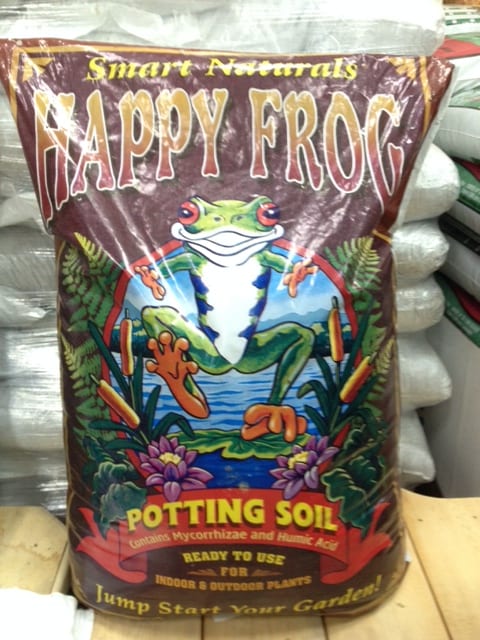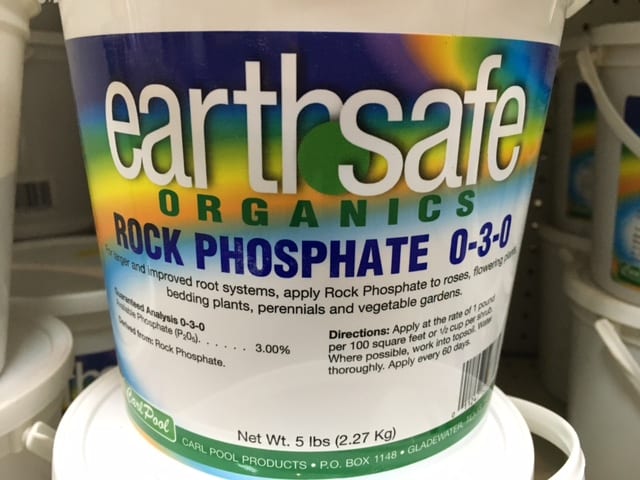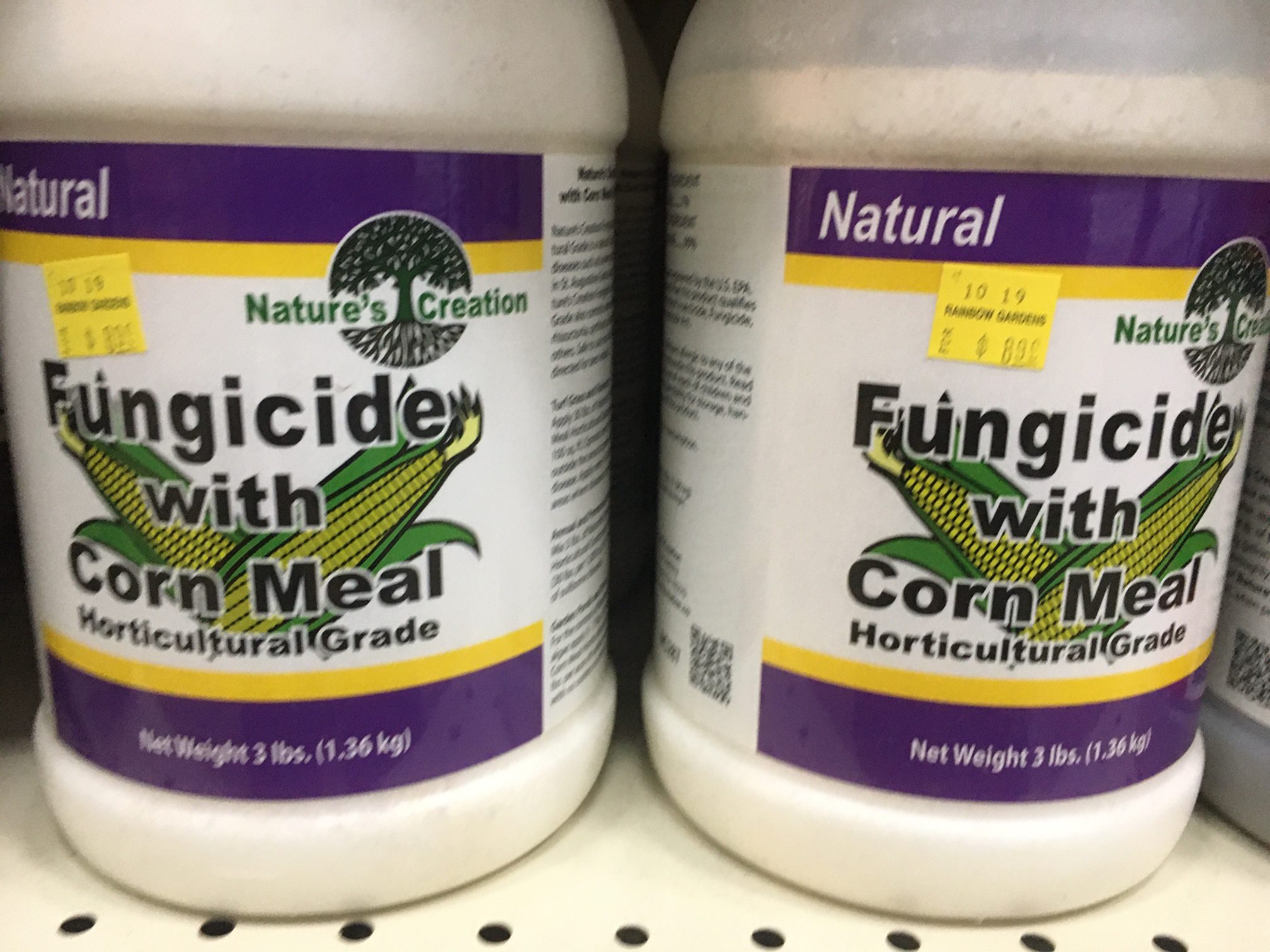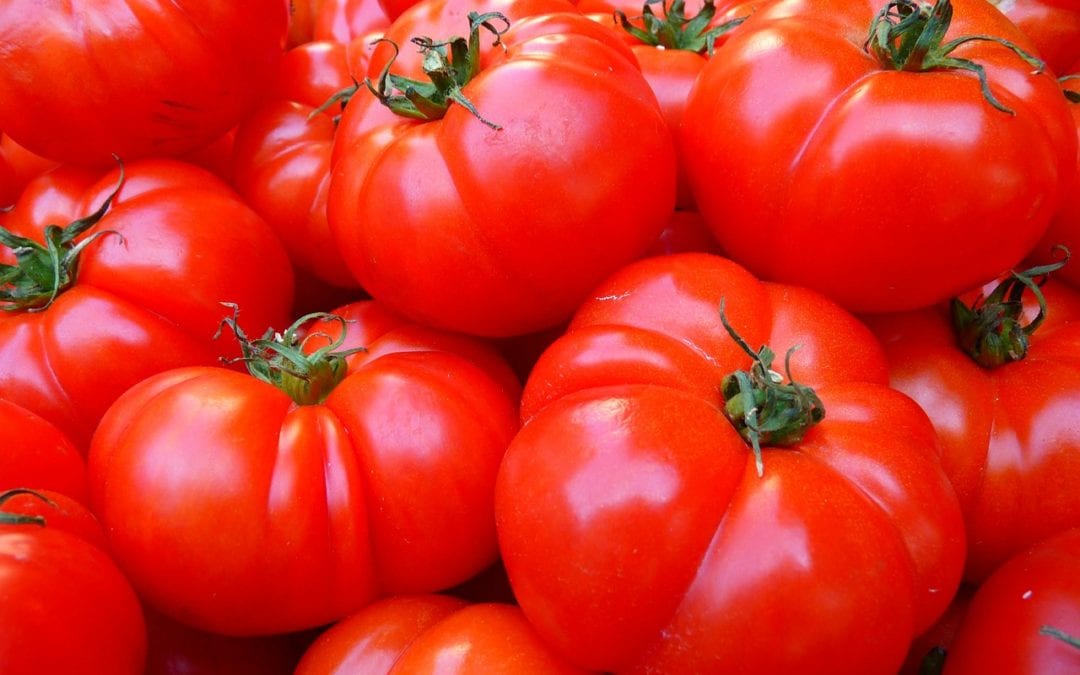When February rolls around in San Antonio, the tomato-crazed gardeners come out of the woodwork, and we’re right there with them! As a matter of fact, many of us here at Rainbow Gardens have already started our tomatoes indoors to get a jump on the season. Today, we’re going to get you ready for tomato season with the supplies you’ll need as well as a few extra tips for tomato success.
3 Simple Tips For Growing Tomatoes Successfully
1. Organic Matter for Tomatoes:
Tomatoes are heavy feeders and crave to be planted in soils rich with organic matter. The more the merrier! The FoxFarm line of premium soils and soil amendments are chock full of beneficial soil microbes and micronutrients. Check out our soil tests when you visit Rainbow Gardens to see the difference between these soils and others.

- If you are planting in containers, start your tomatoes in FoxFarm’s Happy Frog potting soil (only use potting soil in containers, no garden soil). Happy Frog is full of bat guano, earthworm castings, aged forest products and soil microbes that help with root aeration and nutrient uptake. This premium potting soil makes the perfect environment for our tomatoes to get a great start.
- If your tomatoes are going straight into garden beds, we sure hope you have amended your garden soil with plenty of compost. 3″ of fully cooked compost, or a product like FoxFarm’s Happy Frog Soil Conditioner (which contains mycorrihzae and humic acid), should be tilled into your vegetable gardens each planting season (spring and fall).
2. Weapons for your Tomatoes:
Adding Rock Phosphate and Horticultural Cornmeal to your arsenal when growing your tomatoes have proven to be great tips from our local tomato expert, Keith Amelung.
- Keith is big on adding a handful of rock phosphate into the hole you’ve dug for your tomatoes and planting the root ball right down in it. The calcium in the rock phosphate builds stronger plants that are more disease and pest resistant, and the phosphorus promotes stronger roots and more abundant blooms. Tried and proven!
- Sprinkle a few handfuls of horticultural cornmeal on the soil’s surface around the base of tomato plants. It’s a natural fungicide and can help eliminate the need for spraying your tomatoes with any type of chemical later. You can also use some of that horticultural cornmeal and make a tea to spray your tomatoes to ward off and/or combat powdery mildew after long, rainy and cloudy periods which we frequently see in spring.


Consistently Fertilize Your Tomatoes:
Tomatoes are greedy plants and need to be fed often. Water in your new transplants with a soluble fertilizer like FoxFarm’s Grow Big (when the plant is in vegetative state) to get them off to a good start in the garden or pot. Usually monthly feedings of a high quality granular fertilizer like Espoma Tomato-Tone or FoxFarm’s Happy Frog Tomato & Vegetable Food are ideal. Follow the label on the bag for application instructions. Supplement with weekly feedings of an organic water soluble fertilizer like FoxFarm’s Big Bloom once the plant has set flowers and is starting to produce tomatoes.

- Ground plantings of tomatoes get many nutrients from the quality compost and soil conditioner you mixed in your beds to prepare for the season (you did do that, right?), but will still need extra nutrients throughout the growing season. The more organic matter you mix in the better.
- Potted tomatoes can’t search out nutrients like ground plantings which is why the premium soil recommend above is important for a good start, and then supplemental feedings will be imperative.
- Epsom salt is a low-cost fertilizer which also combats diseases that tend to plague tomatoes. Use as a side dressing by mixing 1 TBSP per foot/height of each tomato plant into the soil around its base. However, my method of choice is to use it as a spray during the maintenance phase of growing tomatoes. The spray, applied early – mid season combats blossom end root and aids in the production of fruit.
~The Happy Gardener, Lisa Mulroy


I have grown tomatoes in Earth Boxes for years with wonderful success. I have Big Beef and Red Brandywine growing in Miracle-Gro Mix Moisture Control this year. I have discarded approximately 75% of the tomatoes with black bottoms. In the past, I have always used Miracle-Gro Potting Mix and this is the first time I have tried it with Moisture Control. Is this my problem, if not, what is causing the black tomato standout?
The blossom end rot that is happening is definitely due to inconsistent moisture. We have had some pretty good rainfalls throughout this spring, so it is possible that the moisture control potting mixture is holding on to too much moisture. you may need to adjust your regular watering schedule, avoiding watering even longer after periods of rain. I’m attaching a past blog about blossom end rot even though it is about squash, it is the same issue.